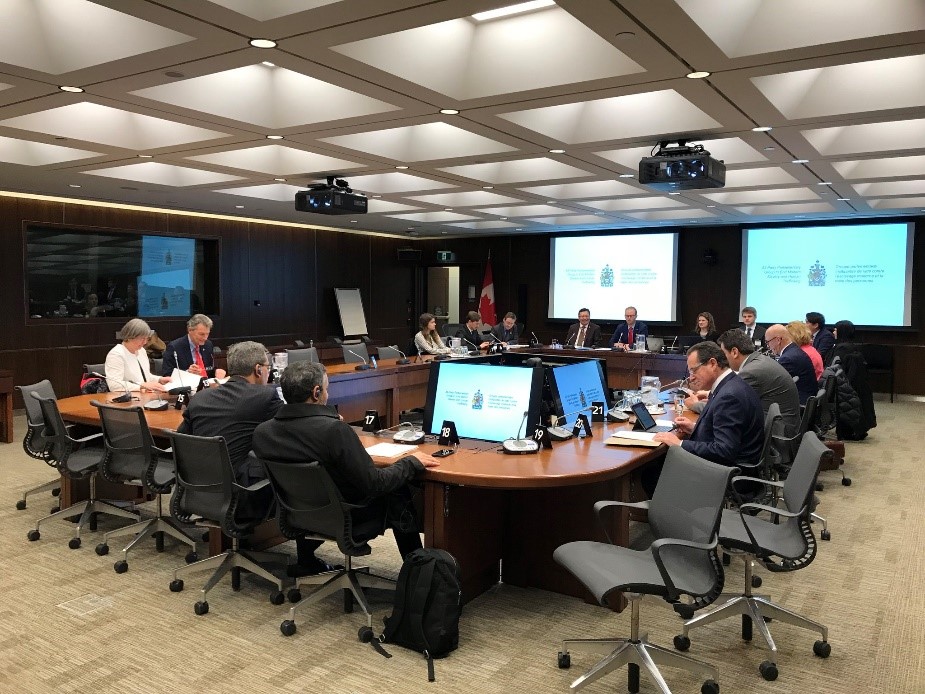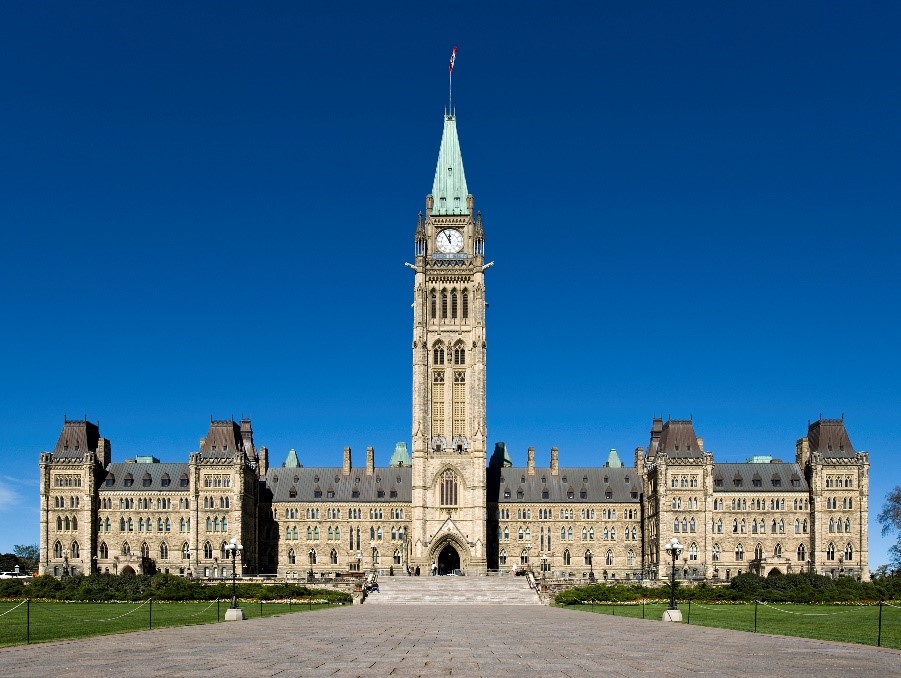Serge Grochenkov
Supply chain transparency is a growing trend in global policy initiatives. With many major economies already benefiting from some form of supply chain legislation, Canada is on track to align with this trend. The International Justice and Human Rights (IJHR) Clinic has been conducting legal research and drafting briefing papers for the federal government, resulting in the proposed Transparency in Supply Chains Act (TSCA). If adopted, Canada would join other major players such as the United Kingdom and France in the fight against modern slavery in its various forms.

It is clear that the federal government recognizes the importance of supply chain legislation. In October 2018, the Canadian Standing Committee on Foreign Affairs and International Development issued a report titled A Call to Action: Ending the Use of All Forms of Child Labour in Supply Chains. The report made several recommendations, not least among them that “the Government of Canada develop legislative and policy initiatives that motivate businesses to eliminate the use of any form of child labour in their global supply chains, and that empower consumers and investors to engage meaningfully on this important issue.” In response, the federal government announced that it “will initiate consultations in 2019 on possible supply chain legislation.”
Supply chain legislation is an area that the IJHR Clinic has been exploring for over two years, the catalyst for which can be traced back at least as far as a 2015 set of concluding observations by the United Nations Human Rights Committee. In its final report, the Committee concluded that it was concerned about “allegations of human rights abuses by Canadian companies operating abroad, in particular mining corporations, and about the inaccessibility to remedies by victims of such violations.” This led the Committee to issue the recommendation that Canada “enhance the effectiveness of existing mechanisms to ensure all Canadian corporations under its jurisdiction, in particular mining corporations, respect human rights standards when operating abroad.” This was not the first time the U.N. had been critical of Canada. In 2012, the Committee on the Rights of the Child published its own set of concluding observations. Among the recommendations were that Canada establish “a clear regulatory framework for, inter alia, the gas, mining, and oil companies operating in territories outside Canada to ensure that their activities do not impact on human rights or endanger environment and other standards, especially those related to children’s rights.” A clear gap exists in Canada’s legislation.
Since the spring of 2018, the IJHR Clinic has been working in partnership with the Canadian All-Party Parliamentary Group to End Modern Slavery and Human Trafficking, a group of multiple Members of Parliament and Senators of various political affiliations. The result has been the drafting of the TSCA – the culmination of countless hours of research and editing by multiple IJHR clinicians that has taken into account the input of various experts. The hope is that the TSCA provides a framework for human rights protection in the operations of Canadian businesses, which would solidify Canada’s reputation as a human rights leader and make partnerships with Canadian businesses more desirable for governments and companies worldwide.

Several major economies throughout the world have already adopted some form of supply chain legislation. In 2015, the United Kingdom passed its Modern Slavery Act. The U.K. requires that organizations exceeding £36 million in annual turnover, among other prerequisites, produce a slavery and human trafficking statement. This statement may include information about topics such as the organization’s structure and its policies in relation to slavery and human trafficking.
France followed in 2017 with its due diligence legislation (Loi de Vigilance). Going further than the U.K., the French law both requires companies to report on their supply chains and it creates a duty of care that companies must show towards human rights and the environment.
Only a few months later, the European Union passed the Conflict Minerals Regulation with the aim of promoting the responsible sourcing of minerals among European companies. The law is set to come into force in 2021.
Other major economies include California with its Transparency in Supply Chains Act, and the United States more broadly with Section 1502 of the Dodd-Frank Wall Street Reform and Consumer Protection Act. More recently, Australia passed the federal Modern Slavery Act 2018. The Netherlands and Germany are on track to be the next to have some form of supply chain legislation come into force, the former with a child labour due diligence bill and the latter with its human rights due diligence draft law. Most of these pieces of legislation follow the common theme of requiring an organization subject to the respective act to report on the state of its supply chains.
While it is clear that Canada will not be the first to adopt supply chain legislation, it should be the next. Doing so would prove the country’s commitment to addressing child labour, modern slavery, and other human rights violations.
Serge Grochenkov is a second-year student at the Peter A. Allard School of Law at the University of British Columbia in Vancouver. His work with the IJHR Clinic has primarily involved serving as part of the external research group for the Canadian APPG on Modern Slavery.